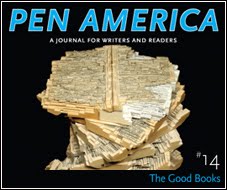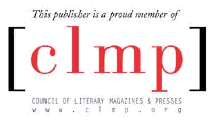 Mark Sarvas sheds some light on an unusual and unfinished opus: "Steinbeck's incomplete attempt to render the Arthurian tales in 'plain present-day speech for my own young sons.'" A new edition of this book, which Steinbeck began in 1956, will be out from Viking in November.
Mark Sarvas sheds some light on an unusual and unfinished opus: "Steinbeck's incomplete attempt to render the Arthurian tales in 'plain present-day speech for my own young sons.'" A new edition of this book, which Steinbeck began in 1956, will be out from Viking in November.The idea that he was writing the book for his "own young sons" reminded me of this story, told by George Plimpton in PEN America 4: Fact/Fiction:
Many years ago, I met John Steinbeck at a party in Sag Harbor, and told him that I had writer’s block. And he said something which I’ve always remembered, and which works. He said, “Pretend that you’re writing not to your editor or to an audience or to a readership, but to someone close, like your sister, or your mother, or someone that you like.” And at the time I was enamored of Jean Seberg, the actress, and I had to write an article about taking Marianne Moore to a baseball game, and I started it off, “Dear Jean...,” and wrote this piece with some ease, I must say. And to my astonishment that’s the way it appeared in Harper’s Magazine. “Dear Jean...” Which surprised her, I think, and me, and very likely Marianne Moore.Jean Seberg is most famous today for her beguiling turn in Jean-Luc Godard's Breathless, from which the above picture is taken. That film came out in 1959, just as Steinbeck was abandoning his Arthurian project. Plimpton wrote the article for Harper's five years later, in the fall of 1964. Is it possible he had just seen Lilith-- also featuring Warren Beatty, Peter Fonda, and Gene Hackman-- and fallen for Seberg's portrayal of a "seductive, schizophrenic" woman staying at "an elite sanitarium in New England"? ("Before Eve there was Evil... and her name was Lilith!")

Plimpton wasn't kidding, by the way: You can check out the first page of his Harper's article on the right (click on the photo to enlarge). And you can read the rest of Plimpton's tribute to Steinbeck-- entitled "Lonesome Animals," a term Steinbeck applied to writers-- here.











